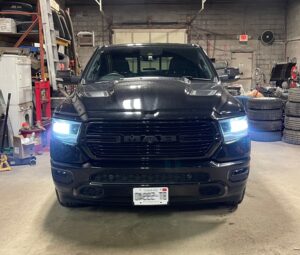Can I Buy A Car Before I File For Bankruptcy?

When it comes to filing bankruptcy, people are always going to have questions. As a CT bankruptcy attorney, I’ve been asked them all and I more than enjoy answering questions because it helps my clients understand what bankruptcy entails and how they can get the best out of it. In my recent article I answered a common question about filing bankruptcy from jail and I also put together an article on the ethics of related to bankruptcy and what you’re not being told.
Well that leaves me with another question to answer, and it’s a good question – Can I buy a car before I file? Read on to find out if you can.
A car is critical in Chapter 13
CNN Money recently reported that the average age of vehicles on America’s roads has reached an all-time high of 11.4 years, according to the market research firm Polk. The trend of keeping cars on the road longer has been building for some time. In 1995, the average vehicle was 8.4 years old, while by 2002, the average age had only crept up to 9.6 years.
While having reliable transportation is important for most American families, it can be critical for a debtor in Chapter 13 bankruptcy. The average Chapter 13 bankruptcy case lasts three to five years, and during that time the debtor is prohibited from incurring additional debtor without court approval. (read more about chapter 13 here)
While it is possible to get court approval for a different vehicle during the bankruptcy case, it is not an easy process when you factor in a conservative bankruptcy court judge, the objection from the bankruptcy trustee, and the scarcity of lenders and auto dealers who will work with a debtor in bankruptcy. Consequently, a debtor who purchases a vehicle during bankruptcy often overpays for a vehicle he or she doesn’t want. That’s not good at all.
The answer for many debtors preparing to enter Chapter 13 bankruptcy is to finance a new vehicle before filing bankruptcy. There are several good reasons to do this, including:
1. A newer vehicle is less likely to fail than an older vehicle, and a new vehicle has a “bumper to bumper” warranty that will last three to five years (or more). That means that your bankruptcy case will not fail because of an expensive vehicle repair.
2. Many debtors can benefit from a new vehicle purchase on the bankruptcy Means Test. The Means Test calculates disposable income that is available to pay unsecured creditors (like medical bills and credit cards). For some debtors, the purchase of a new vehicle will qualify the debtor for Chapter 7 bankruptcy. For others, money that is spend on secured creditors (like a car payment), will reduce the amount available for unsecured creditors. For many debtors the issues is simply this: would you rather spend your money buying a new car, or repaying credit cards?
3. The Bankruptcy Code generally allows a vehicle to be crammed down to value, unless it is purchased within 910 days of the bankruptcy filing. However, while cram down is not available to modify the principle amount owed on a “910 vehicle,” most courts allow the interest rate to be modified. The U.S. Supreme Court has stated that the proper interest rate to use in cram down case is about 2% over the prime interest rate (called the Till rate, after the case). Till v. SCS Credit Corp., 541 U.S. 465 (2004). So as an example, if a Chapter 13 debtor obtained a vehicle loan at 19% interest, the loan interest rate could be crammed down to a more reasonable interest rate.
Purchasing a new vehicle prior to bankruptcy
For many debtors, purchasing a new vehicle prior to bankruptcy is simply planning for bankruptcy success. I suggest you read the last sentence again. The U.S. Supreme Court, in Milavetz v. United States, 2010 U.S. Lexis 2206 (2007), specifically approved the idea of incurring a debt just prior to a bankruptcy filing, so long as you intend to pay the debt in full and don’t incur the debt with a “bankruptcy motive.”
If the motivation in financing a new car prior to bankruptcy is a “bankruptcy motive,” the court will find that you have not acted in good faith and you (and your attorney) will be answering questions regarding abuse of the bankruptcy system. In order to stay on the “right side of the law,” a vehicle purchase on the eve of a Chapter 13 bankruptcy filing should be necessary, “sensible” (one judge quipped that he would not allow a debtor to keep a car nicer than his own), affordable, reliable, and meet your family’s needs.
Think of it this way: a $20,000 Ford Focus is fine, a $30,000 Toyota Camry maybe OK to purchase if you can afford it, and a $70,000 Lexus is not. See a common sense discussion of purchasing a new car on the eve of bankruptcy in In re Wolf, No. 13-13174-BFK (Bankr. E.D.Va, October 3, 2013).
A lien must be recorded within 30 days of purchase
If you choose to purchase a vehicle before bankruptcy, be mindful that in most states, a lien must be recorded within 30 days of purchase in order to create a valid and enforceable lien on the vehicle. If you file bankruptcy and the lender records its liens after the statutory period, the bankruptcy trustee is able to avoid the lender’s lien and declare the vehicle free and clear. A Chapter 7 trustee can then take and sell the vehicle. To make matters worse, section 544 of the Bankruptcy Code allows the trustee to step into the shoes of the lien creditor and invalidate an unrecorded lien. You can lose the vehicle and any vehicle exemption for an unrecorded car loan.
The solution to this trap is simple. Before you file, ensure that the lender or lien-holder has recorded its interest with the state Department of Motor Vehicles and having a copy of the recorded lien for your attorney and the bankruptcy trustee will help clarify the matter.




